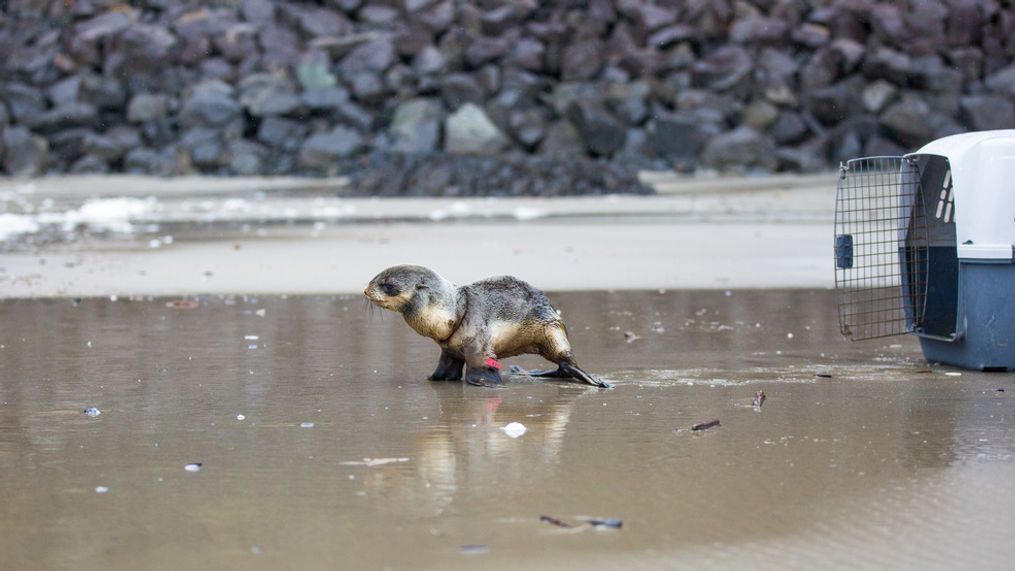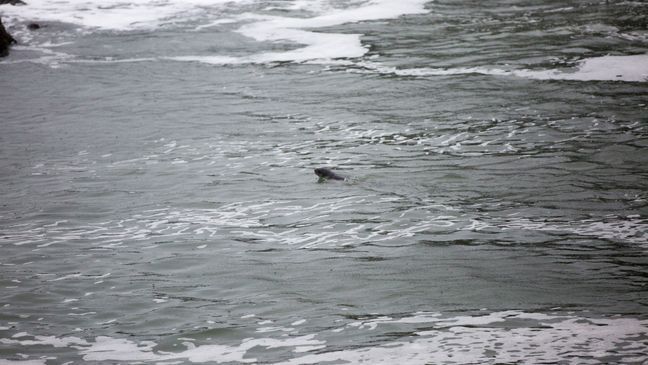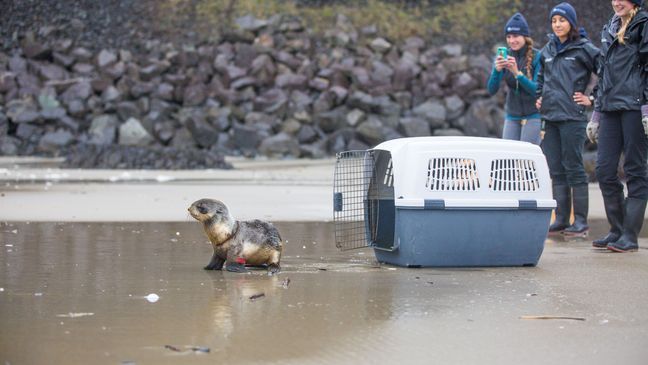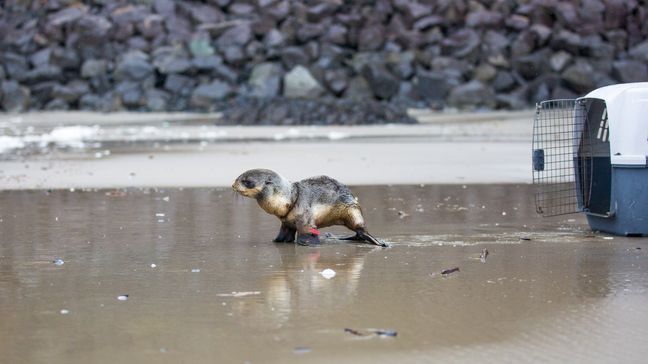Fur seal pup found entangled in plastic string released back into the wild
NEWPORT, Ore. - The Oregon Coast Aquarium successfully released a young northern fur seal Wednesday.
The animal was found injured by entanglement in a plastic string in Winchester Bay on Monday.
Aquarium staff and Jim Rice from the Oregon Marine Mammal Stranding Network took the pup to Quarry Cove in the Yaquina Head Outstanding Natural Area for release.
Excitement and anticipation filled the air as the seal tentatively peered out of its carrier before heading toward the water. He drifted in the protected surf for a while, clearly at ease, while he groomed his fur and swam around. Staff cheered when he crossed the wave-break back into the open ocean.
“We came down to this location because the protection from the surf provided a chance to for him to swim in a controlled space with open ocean access. The tide is coming in, which will make his passage back out much easier,” said Jim Burke, Oregon Coast Aquarium Director of Animal Husbandry. "If things didn’t go well, we could restrain him and bring him back in. That being said, the response here was as good as we could have asked for. We are very optimistic—we wouldn’t have released him if we weren’t.”
A NOAA Fisheries officer found the pup in an RV parking lot in Winchester Bay on Monday morning.
The string - possibly from a balloon or plastic twine - had cut through the seal’s skin around its neck and abdomen.
"The animal had been entangled for quite a long time," Burke said. "The string had been there as the animal grew, which constricted it and created a deep abrasion.”
Aquarium staff cleaned the wound and administered antibiotics.
The seal pup bounced back.
“He was feisty, and his body condition was fairly strong,” said Burke. “These animals are pelagic species that are used to catching their prey. This animal has probably never eaten a dead fish, let alone had one handed to him. The best option for the pup to regain strength is to get him back out in the ocean eating on his own again.”
Likely born in the Pribilof Islands of the Bering Sea in early summer, this male northern fur seal would have been weaned from its mother in early fall. By this time of year, it has spent multiple months at sea on its own.
Rice said these animals, and other seals and sea lions, are not usually rehabilitated as a matter of policy.
“Most seals and sea lions in Oregon are from abundant populations. In most cases, it is felt that the best policy is to let nature takes its course,” said Rice. “This is a unique situation because this animal is from a species that is not typically found on the Oregon coast and was impacted by human activities.”
If you find a seal or sea lion pup on the beach, the Aquarium advises the public to obey marine mammal protection laws and let nature take its course. Observers can also call the Oregon Marine Mammal Stranding Network Hotline (541) 270-6830 if concerned.




